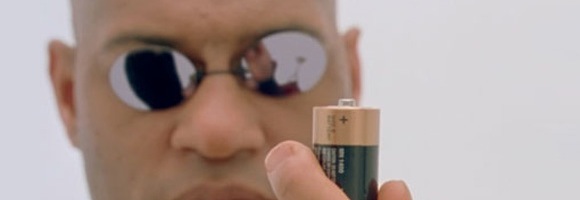I Know Kung Foo
The first time I watched the Matrix I distinctly remember turning to my mother and asking - "um, what just happened?" I was a tad lost. One cannot fully appreciate this film without watching it a few times. Only on my fourth viewing did I begin to suss out the dizzying layers of metaphor. Apparently, for example, every individual actor or behavior in the matrix virtual world can be related to a computer process.
This genre-defining trilogy offers us much more than in-your-face action and gravity-defying rimless glasses (but seriously, how cool would they be if they weren’t “matrix only”). This film leaves us with an enduring commentary on the relationship between humanity and technology.
While I could take this entry in possibly 10 to the 12th (10^12) different directions, I have decided to focus in on how people go about learning in the matrix.
Enter the MOOCs and Autodidacts
Have you ever heard of Coursera.org or Edx.org? They are what are known as MOOCs - massive online open classes. They offer free content in class formats in almost any subject under the sun. Example sites such as Coursera.org have set course beginning and end dates and offer certified accreditation - where your own computer will take a snap shot of you to verify YOU are taking the class and also analyze your writing patterns to make sure YOU are in fact writing the assignments.
While some people argue MOOCs are hyped, I wonder how close this model is coming to "matrix type" learning. In this system people simply pick and choose exact subjects they need to learn on an as-needed basis. While I'm not suggesting that we can plug ourselves into the jack behind our heads (not that that is ruled out), I mean to argue the education is evolving. With the invention of computer precision and intelligence, certain knowledge areas have become superfluous - while other subjects become easier to learn than ever as content is more readily available. The only part of the equation we cannot yet influence is pure experience in a subject area and the psychological power of tangible degrees.
How long until we forgo college programs altogether and simply start our professional careers earlier? In this future, we would begin our jobs and learn new required subjects as job demands arise. Instead of skills being pushed out from universities they would be pulled by the market - much more sustainable and adaptable. After all, now a days there really is nothing stopping individuals from learning anything aside from pure laziness - everything can quite literally be found on the internet.
This is the age of the Autodidacts, the person who best is able to teach him or herself will be successful. Career advisors always say it is best to never stop learning in your field. If you can't find or afford the content out there in the real world it is waiting for you online. Go find it!







